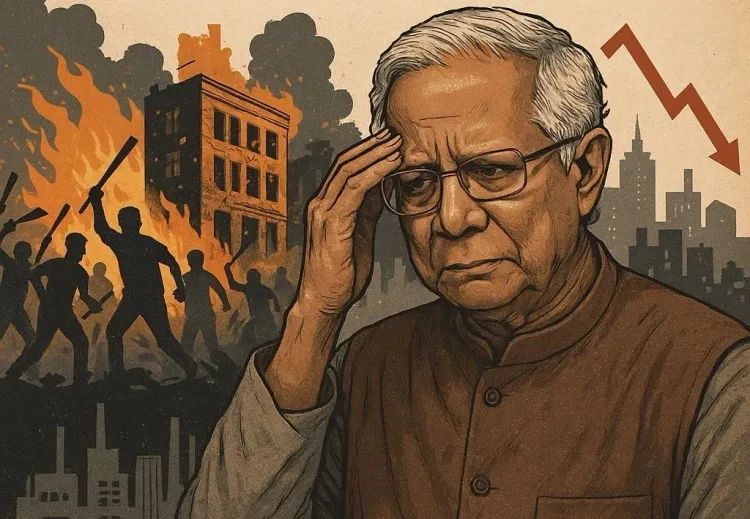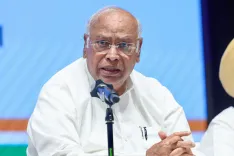Is the Awami League Concerned About Bangladesh's Economic Crisis?

Synopsis
Key Takeaways
- Bangladesh's economy is experiencing a severe downturn.
- Foreign Direct Investment (FDI) has declined significantly.
- Mob violence is rising, affecting stability.
- The business community describes the situation as an act of sabotage.
- Effective government intervention is crucial for recovery.
Dhaka, July 7 (NationPress) The Awami League Party of Bangladesh raised significant alarms regarding the rapidly worsening economic landscape in the nation under the interim leadership of Mohammed Yunus.
In a post on X, the party stated, "Mob violence meets market meltdown: Bangladesh's economy suffers under the Yunus administration ... Once viewed as an emerging economic powerhouse, Bangladesh is now grappling with a sharp decline in investments, increasing mob violence, and a lack of effective governance. With 253 incidents of mob violence and 163 casualties, foreign investments have plummeted to a 14-year low, resulting in factory closures and industries struggling to stay afloat."
Using an old Bengali saying, they remarked: "No food to give, yet always ready to strike, perfectly describes the current Yunus government."
"From overwhelming interest rates to the systematic dismantling of the private sector, business leaders report unprecedented dysfunction, including frequent power outages, gas shortages, tax harassment, and import frauds. All of this occurs while the government organizes ostentatious investment conferences merely for publicity," the Awami League pointed out.
The party emphasized that under Yunus's interim regime, Foreign Direct Investment (FDI) has plummeted from $3.48 billion in 2018–19 to just $910 million by 2024–25. There was also a 27% drop in letters of credit for capital goods, a contraction in industrial output, and a significant erosion of investor confidence.
Quoting Shawkat Aziz Russell of the Bangladesh Textile Mills Association (BTMA), they noted, "In 1971, we lost our intellectuals. In 2025, we are losing our entrepreneurs."
In addressing the escalating concerns of Bangladesh's business sector, the party asserted that the current state is not merely an "economic downturn" but an act of "sabotage." They questioned whether the Yunus administration would "redirect its course or allow the nation to crumble."
Earlier in May, the Awami League reported a "dramatic decrease" in FDI, a crucial indicator of global confidence in the economy, under the existing administration.
"In just eight months, Bangladesh has experienced a reported $208 million drop in FDI — a massive blow to an already fragile economy. Issues related to law and order, politically motivated violence, and an unpredictable regulatory framework have all contributed to the flight of foreign investors," the party stated in a release.
"Cases of looting and vandalism have surged, affecting even multinational corporations like Pizza Hut and Bata. Instead of taking action to safeguard businesses and restore order, the government has largely remained inactive, allowing fear and uncertainty to proliferate," the party added.









